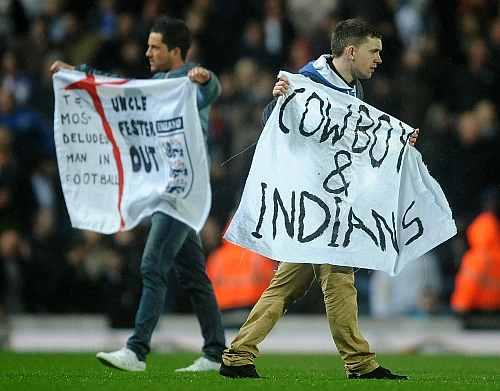 | « Back to article | Print this article |
No tears in India over Blackburn's relegation
As Blackburn Rovers supporters in Lancashire awoke on Tuesday struggling to cope with the club's relegation from the Premier League, there was little sympathy to be found on the streets of India, the home of the club's owners.
In a country of 1.2 billion cricket fans, some 60 million Indians watched the English Premier League's 2009/10 season, roughly the same as Britain's entire population.
Most of them, however, never really cared for the former Premier League champions and there was hardly any excitement around Indian poultry giant Venky's 㿃 million takeover of Blackburn in November, 2010.
The same aloofness greeted Blackburn's relegation from the Premier League following their 1-0 home defeat to Wigan Athletic on Monday.
"I didn't really care about Blackburn. For me they were just another football club. I felt no special affinity towards them. I viewed them as another club my team (Arsenal) had to beat to reach the top four," Swaroop Swaminathan, a student at Newcastle University, in England, told Reuters.
'Venky's has not invested in Indian football'
Abhishek Iyer, a third year student at a premier engineering institute in Rajasthan was equally dismissive.
"I don't care about them - didn't like them as a team much and (having) Indian owners don't change that. Reasonably satisfied they're gone," he said.
All India Football Federation (AIFF) Vice President Subrata Dutta echoed a similar sentiment. "Venky's has not invested in Indian football... Apart from one exhibition match between Pune FC and the club, Blackburn Rovers has in no way contributed for Indian football. So we are not bothered about their relegation," Dutta said.
"I don't think they have served our purpose or even their purpose. Being a Pune-based company, I would have been happy if they would have invested in Pune FC rather than Blackburn Rovers," he added.
'They did not have the proper marketing strategy'
Bhaswar Goswami, executive director of Celebrity Management Group, felt Venky's never made a real effort to engage the fans either in England or in India.
"I feel they did not have the proper marketing strategy. There was no real effort to connect with the huge number of Indian soccer fans. They once came to play in Pune but it was not enough.
"Even to the fans in Lancashire, they lacked a clear vision. They have to take the fans there in confidence.
"There is strong emotional attachment to the club and Venky's need to honour that. They have to tell the fans where the club is heading."
Goswami, whose company organised a friendly between Argentina and Venezuela in Kolkata last year, believed Venky's might still hang around Ewood Park despite facing Championship (second division) football next season.
"Selling the club is the easiest way to get out of the trouble. But as an Indian business entity, I expect them to stick around.
"To leverage something from a club like Rovers, it has to be a long-term plan. They need to look at it differently. I still believe it can be a fantastic property if you have a concrete plan for the next five-six years," he added.

© Copyright 2025 Reuters Limited. All rights reserved. Republication or redistribution of Reuters content, including by framing or similar means, is expressly prohibited without the prior written consent of Reuters. Reuters shall not be liable for any errors or delays in the content, or for any actions taken in reliance thereon.


